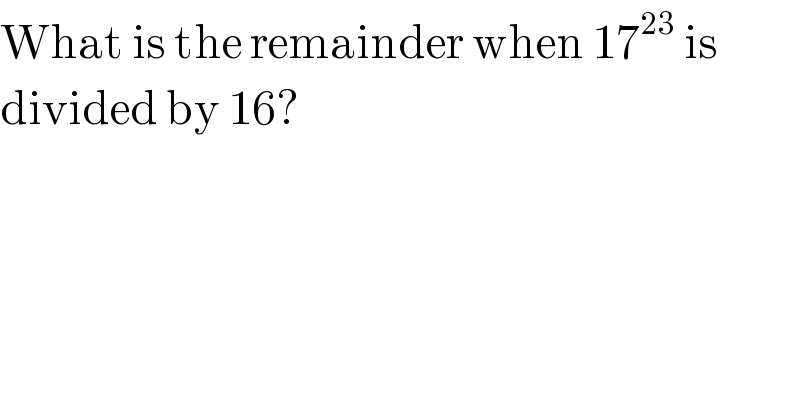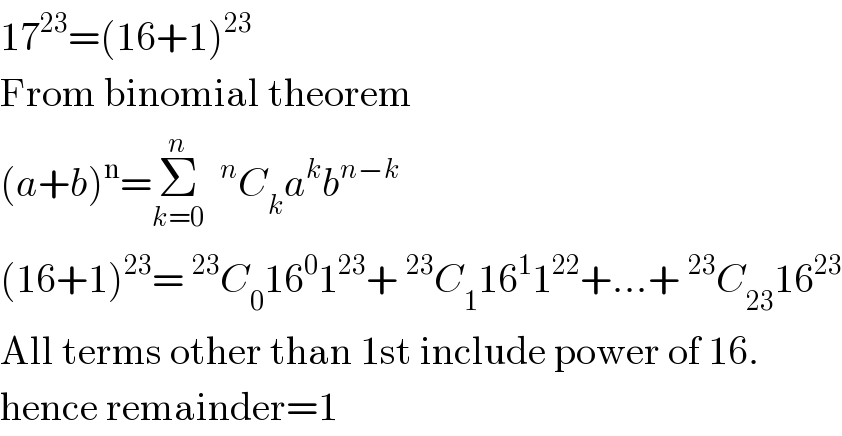Question Number 95 by rajabhay last updated on 25/Jan/15

$$\mathrm{What}\:\mathrm{is}\:\mathrm{the}\:\mathrm{remainder}\:\mathrm{when}\:\mathrm{17}^{\mathrm{23}} \:\mathrm{is} \\ $$$$\mathrm{divided}\:\mathrm{by}\:\mathrm{16}? \\ $$
Answered by rajabhay last updated on 03/Dec/14

$$\mathrm{17}^{\mathrm{23}} =\left(\mathrm{16}+\mathrm{1}\right)^{\mathrm{23}} \\ $$$$\mathrm{From}\:\mathrm{binomial}\:\mathrm{theorem}\: \\ $$$$\left({a}+{b}\right)^{\mathrm{n}} =\underset{{k}=\mathrm{0}} {\overset{{n}} {\sum}}\:\:^{{n}} {C}_{{k}} {a}^{{k}} {b}^{{n}−{k}} \\ $$$$\left(\mathrm{16}+\mathrm{1}\right)^{\mathrm{23}} =\:^{\mathrm{23}} {C}_{\mathrm{0}} \mathrm{16}^{\mathrm{0}} \mathrm{1}^{\mathrm{23}} +\:^{\mathrm{23}} {C}_{\mathrm{1}} \mathrm{16}^{\mathrm{1}} \mathrm{1}^{\mathrm{22}} +…+\:^{\mathrm{23}} {C}_{\mathrm{23}} \mathrm{16}^{\mathrm{23}} \\ $$$$\mathrm{All}\:\mathrm{terms}\:\mathrm{other}\:\mathrm{than}\:\mathrm{1st}\:\mathrm{include}\:\mathrm{power}\:\mathrm{of}\:\mathrm{16}. \\ $$$$\mathrm{hence}\:\mathrm{remainder}=\mathrm{1} \\ $$
Answered by 123456 last updated on 22/Dec/14

$$\mathrm{17}^{\mathrm{23}} \equiv\mathrm{1}^{\mathrm{23}} \equiv\mathrm{1}\left(\mathrm{mod}\:\mathrm{16}\right) \\ $$
